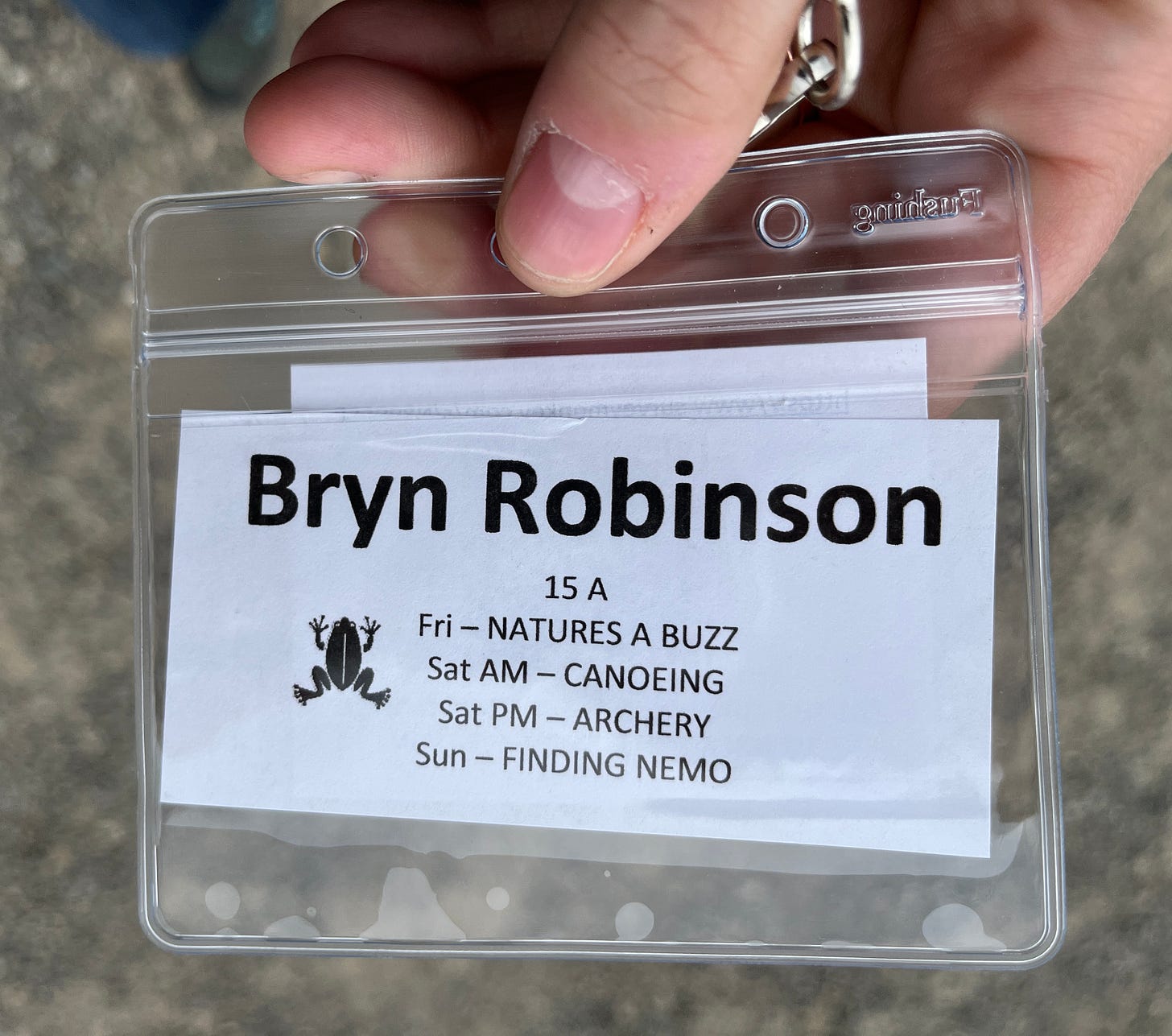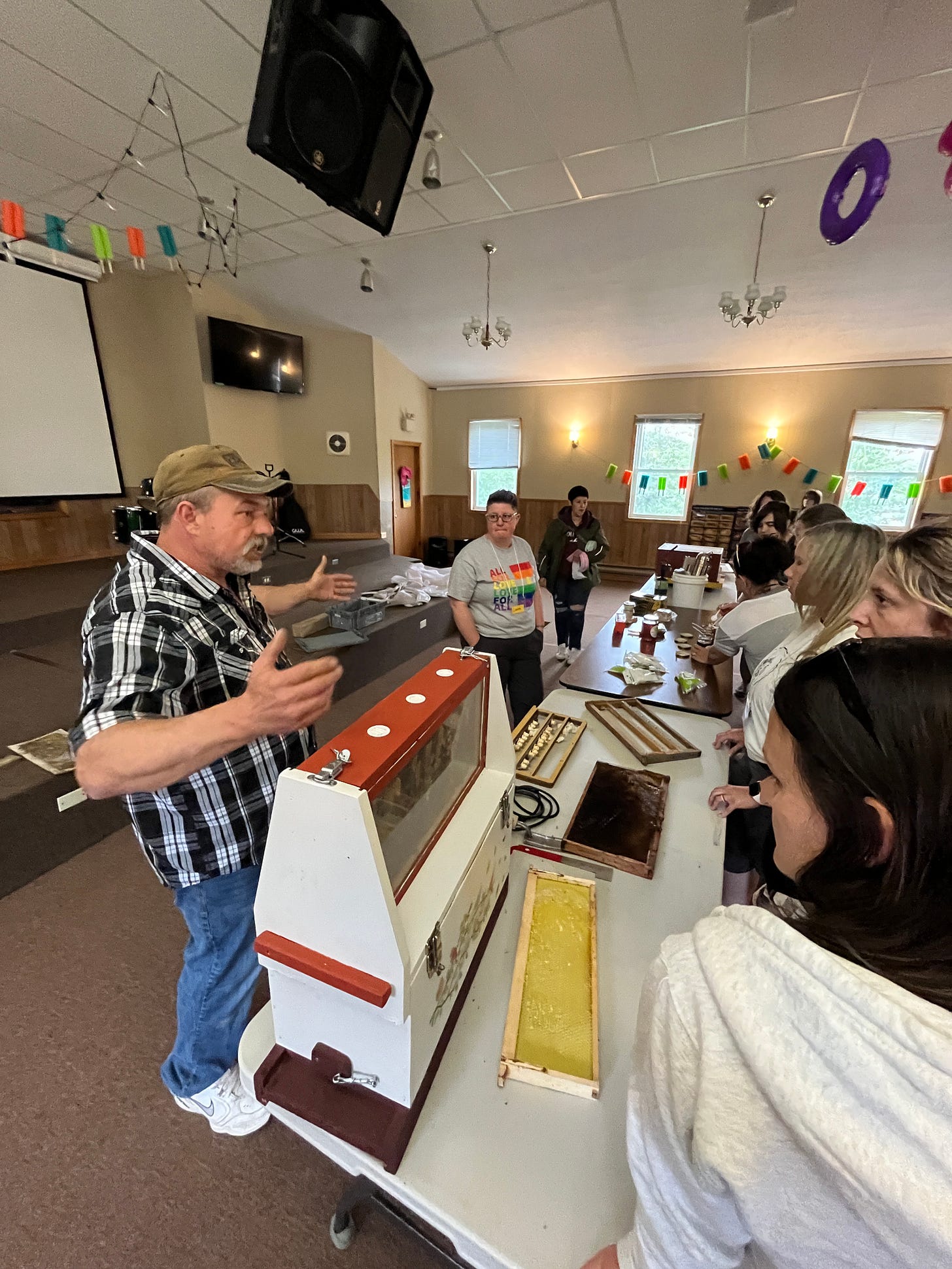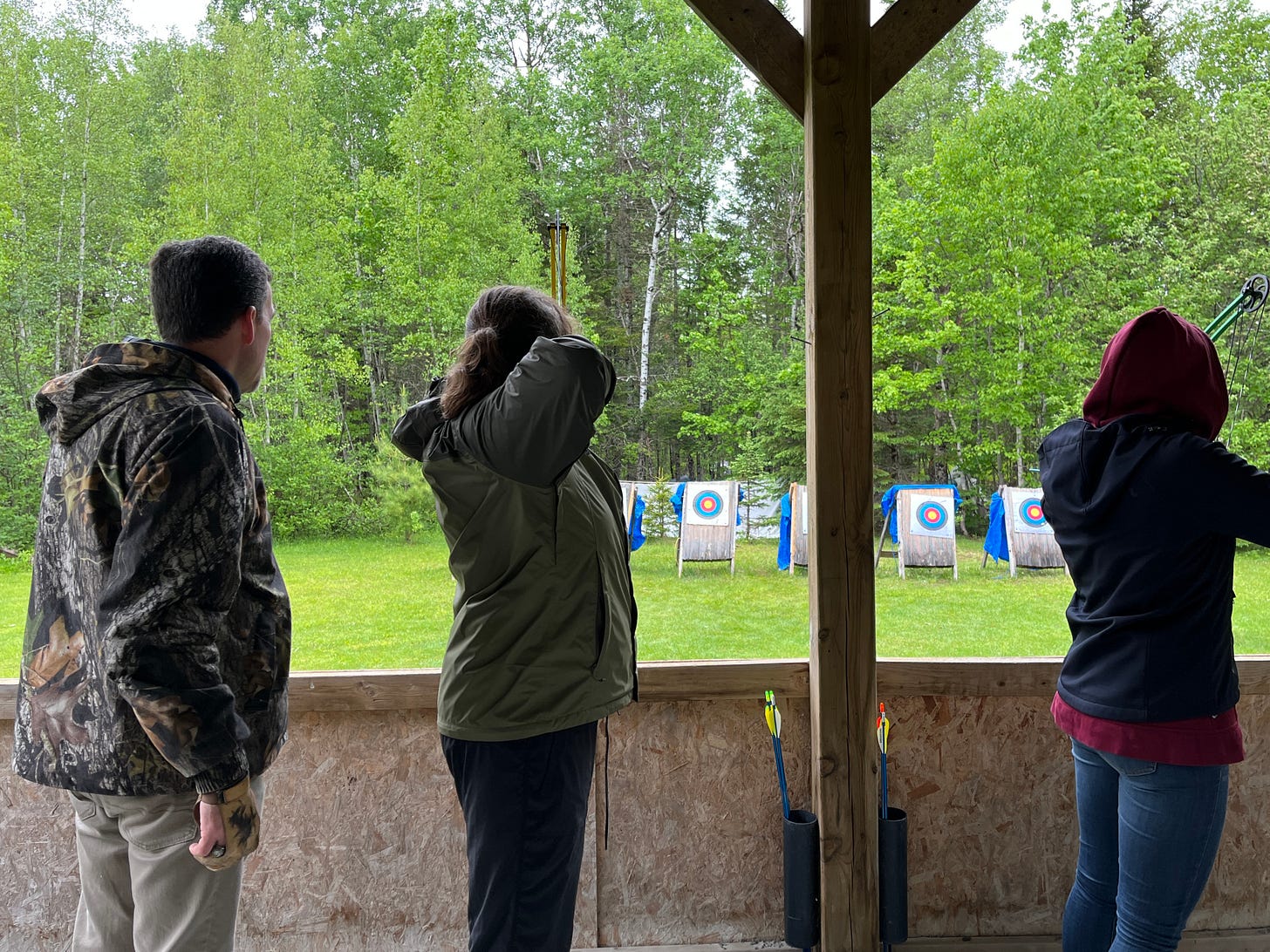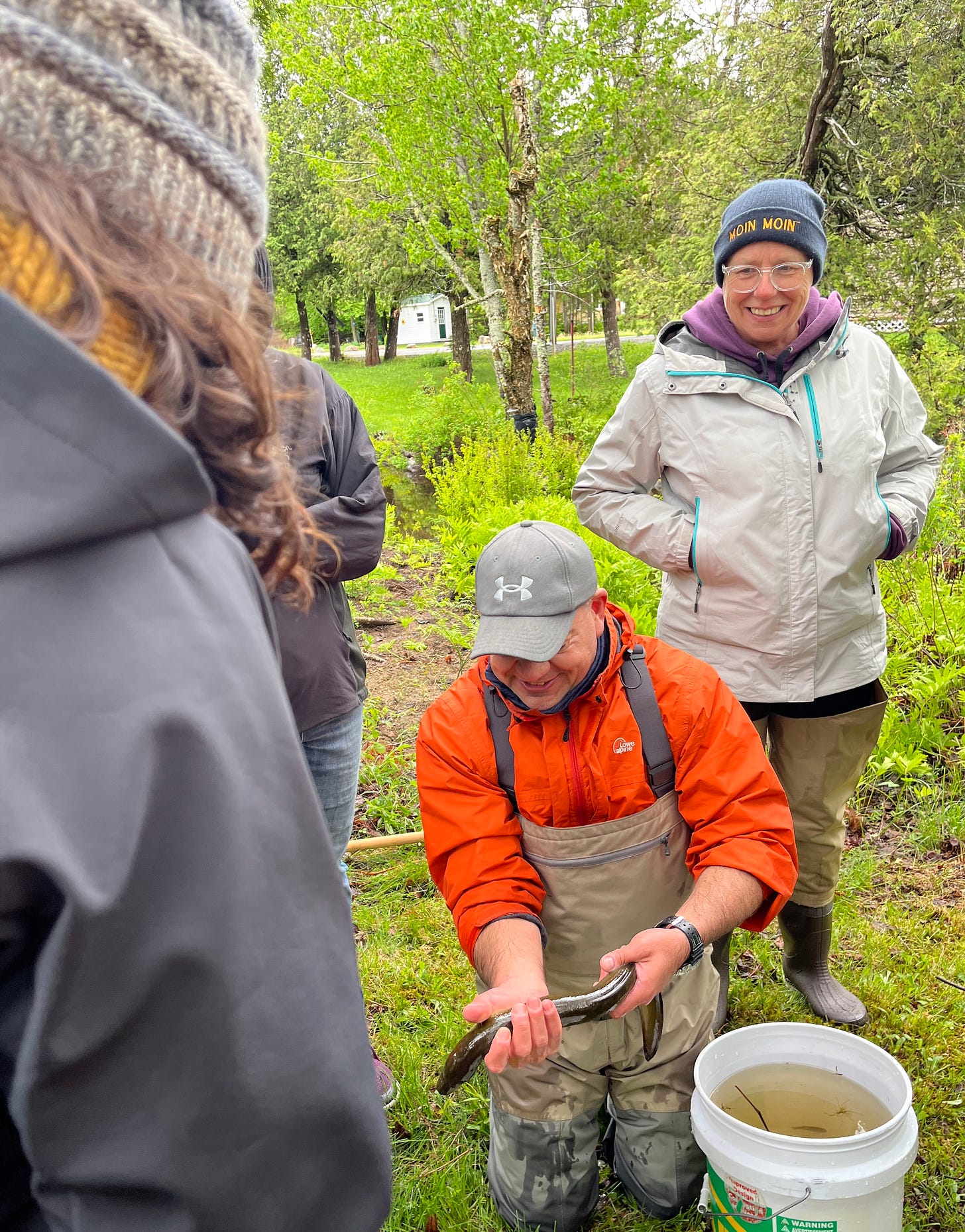#61: I’m a Wild Party
At its’ core, learning about survival is to learn more about the self.
Despite having the reputation for being boring, routines are helpful to maintaining good mental health. But every so often, it’s good for your mental health to shake up the snow globe.
Which is how I found myself last weekend tying flies in a church basement 150+ km from home.
Becoming an Outdoors Woman (BOW) is a movement that started in 1990 by Professor Christine Thomas:1
Thomas developed the program after researching why more women were not participating in outdoor activities such as hunting and fishing. Her research pinpointed several barriers unique to women. It concluded that (generally) women prefer to learn outdoor skills in a non-competitive atmosphere taught by other women.2
Thirty-three years later, the BOW program has expanded into 38 states and 6 Canadian provinces, offering workshops on a wide range of outdoors skills and interests.
The NB 2023 iteration sold its’ 80 spots within 90 minutes, but thanks to a cancellation, I was driving nearly two hours into rural New Brunswick to learn more about the wild woman lifestyle, and by proxy, myself. So what did I learn?

Beekeeping is not an idle, bucolic pastime.

I’ve loved the romantic notion of having a beehive in my backyard; the ability to help pollinators thrive while getting delicious honey seemed like an absolute win. But while listening to Roland share his immense experience in running an apiary of 350+ hives, I realized that being a bee rancher is not a passive mode of farming. In addition to managing production of “crops” (honey and beeswax), he rents out hives to farmers in need of a boost to their production of blueberries, buckwheat, and other flowering crops. Across all these activities, he ensures the health of each hive, involving the same considerations for animal husbandry as livestock or aquatic animals.
No, having a hobbyist hive or two won’t consume my life, but I’ll need to make sure I’m ready to assume the work needed to maintain a small, healthy bee ranch.
Tying flies is an art form.
With the weather causing cancellations of water-based activities for fear of hypothermia (?!), I found myself in the camp chapel basement learning about Rusty Rats, Egg-Sucking Leeches, and other imitation snacks for our gilled friends from two fellow campers. As I concentrated on a tiny hook and even tinier threads, I saw myself doing this as a creative pastime that affords the benefits of mindfulness exercises (similar to gardening or birding for me).

There’s no risk of me becoming an Avenger.

While the instructors, Bruce and Ben, were again fabulous, sharing a deep love for the sport and science of archery and its tools, i learned that this is not a sport for me. My internal aim had arrows skimming the wet grass and piercing the protective tarps around and behind the targets; muscles I never use in my arms and shoulders screamed in disbelief.
Sure, it was my first time ever picking up a bow, but it was enough information to tell me I wouldn’t enjoy the practicing needed to sharpen my skills. I’m glad I tried it, though!
The right instructor can get you to appreciate even some bugs.
Kurt, a researcher with the university and Kate, his grad student, shared some of the techniques and tools they use to collect data from the lakes and rivers around the province. They emptied a net left out overnight and showed us the anatomy and behaviour of the catch - 50+ fish of 10 varieties. They donned large battery backpacks and nets on long poles to “electrofish” - a mild, reversible stunning of fish in rivers and streams that allows their collection. They positioned a boxy net on the stream bed and kicked sediment to collect the bugs that fish will eventually eat; the coolest of these was a baby dragonfly, waiting to emerge and then eat all the mosquitoes that tormented me last week. (Perhaps what I really need is to start ranching dragonflies?)
Afterthoughts
Aside from the wonderful opportunities to geek out, it was a chance to meet people I would likely never meet in my regular life: the lady who had her grandfather’s 1940s bicycle recently restored from the 40s; the woman bottle feeding a premature lamb that now sees her as “Mom”. My bunkmate heard about it from a coworker on a Zoom call and thought it sounded fun - so she flew from Indianapolis, meeting said coworker in person for the first time. There were also the instructors, all deeply passionate folks who were patient and respectful in sharing their crafts, and who loved engaging our 1001+ questions. And, of course, meeting the “me” that took a chance to incorporate more nature in my life. All of this was woven into a delightfully disruptive weekend, with encounters and new knowledge spinning together and adding more fibres to my life quilt.
Truly wild.
https://thewomanangler.com/blogs/the-woman-angler/ep-58-becoming-an-outdoors-woman
https://www.wideopenspaces.com/becoming-an-outdoors-woman/








Amazing, fair play! Thomas' research findings definitley resonate, I find myself more interested in non-competitive survival skills like foraging, not that I have many survival skills at all but I'm inspired to learn more after reading this!
Couldn't resist liking this, solely for the playful title! What a great experience. When our daughter was young, she was fairly bug phobic. After a stint as a youth counselor; she was eating earthworms on a dare! Enjoy your humorous style and thanks for bringing us along!